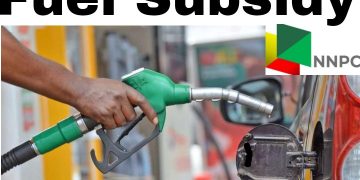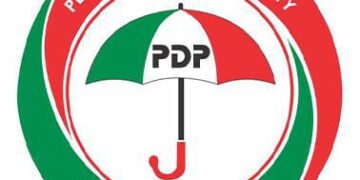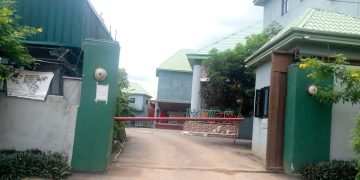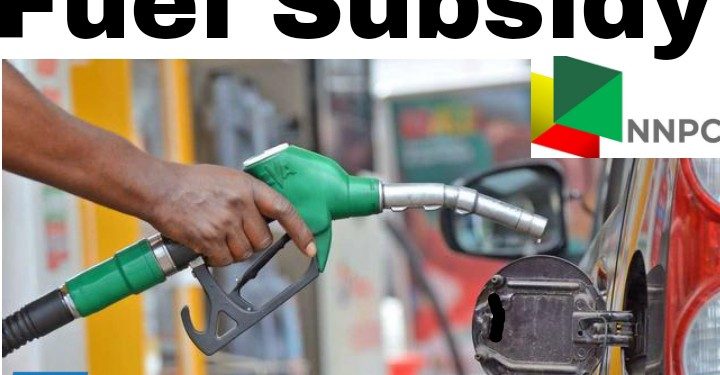Economics of Petrol Subsidy In Nigeria
An Italian economist Vilfredo Pareto (1848-1923) said that if a change in the economic state makes at least one individual better off without making anyone worse off, then the change is for the betterment of social welfare, i.e., the change is desirable.
On the other hand, if a change makes no one better off and at least one worse off, implying that the change will make the society worse off, then, from the point of view of welfare, the initial economic state is Pareto-optimal
On May 29, President Bola Ahmed Tinubu announced the stoppage of payment of Premium Motor Spirit (PMS). The president made the announcement while delivering his inaugural speech at Eagle’s Square Abuja.
While the people were grappling with the reality, the Nigerian National Petroleum Corporation Limited (NNPCL), the monopoly organisation importing and fixing prices in the released a price list which increased the price of PMS from between N195 and N200 to between N488 and N540.
The increase in the price of PMS resulted in a new wave of inflationary pressure which has caused disruptions in the socioeconomic life of the people.
Though some analysts have applauded the sudden removal of subsidy as bold, courageous and timeous, others have described it as unplanned, harsh and most uncharitable.
Subsidy which is a payment made by the federal government to underwrite part of the cost of PMS to make it affordable to the mass poor has been widely said to be a pot of corruption with which economic opportunists have used to fleece the country.
In 2015, former president Muhammadu Buhari referred to the subsidy as “fraud” and “non-existent” even though his administration retained it, spending 11.7 trillion naira ($26bn) between 2016-2023.
As at the time it left office on May 29, the Buhari administration left a 77 trillion naira ($167bn) debt to local and foreign creditors with about 96 percent of government revenue being used for debt servicing.
Following Tinubu’s announcement, NNPC Limited said it welcomes the removal of the subsidy. Its boss added that the government owes the company 2.8 trillion naira ($6bn) for the petrol subsidy..(Al Jazeera May 31)
However there has been wide consensus on the need for removal of subsidy due to its debilitating effect on the national economy and quality of lives of citizens, what has been the bone of contention is the ‘How’ or the modality to effect the end to the policy regime.
Certainly, nothing is wrong with the government making life bearable for the people as it has been doing with the subsidy, the fraud that the subsidy regime has become will bring the country to its knees if not checked consciously and timely too.
A major argument for an end to the subsidy regime is that a large chunk of the subsidised products is diverted to neighbouring countries.
This was confirmed by Tinubu who said during his campaign that he will not continue to subsidise petrol for Cameroon, Niger Republic, Benin Republic, Chad and other neighbouring countries.
Indeed almost if not all presidential candidates in the run up to Feb.25 general election acquiesced to removing subsidy if elected as the country can no longer fund the scheme which has become a fraud.
In separate accounts, the Nigeria Midstream and Downstream Petroleum Regulatory Authority and Nigerian National Petroleum Corporation Limited have estimated the country’s dairy consumption of PMS at 66 million and 60 million barrels per day respectively but what is clear from foregoing is that Nigeria has been subsidising the products for these countries with businessmen as the ultimate winners.
Another argument is that a syndicate has made it an organised crime where they collect money under different guises including for non-existent imported products and round tripping.
Those who oppose the removal of subsidy, a position President Tinubu held tenaciously as contained in a well crafted lengthy letter to then President Goodluck Jonathan in 2012 say the May 29 announcement was meant to punish the masses for the failure of the government to manage its processes effectively.
They say there was no way subsidy would work for Nigerians when the government is operating a borderless or non-effective border control system especially in the routes leading to those countries .
To them, the first thing to do is to ensure a transparent, accountable and due process such that only verified products are subsidised and also put in place an effective border control measure to ensure that subsidised products are distributed within Nigeria alone.
Federal Government should find out what the role of Nigeria Customs Service has been all these years of economic hemorrhage because hundreds and thousands of 45,000 litres fully laden petrol tanker are not candies that can be pocketed and walked across the border with, even if they are, the Nigeria Immigration Service should be there to ask necessary questions.
Many have wondered why Nigerians, a people from a crude oil rich country should be exposed wholesale to vagaries of the international oil market such that they compete and compare with their contemporaries in non producing countries about who is buying fine products at cheaper rate.
Analysts say the Federal Government should have used the first six months to plan the removal if it becomes most expedient.
During the period, the 650, 000 barrel capacity dangote refinery would have started production, the four existing refineries with combined capacity of 445, 000 barrels should have been fixed and licenses issued for modular refineries.
Lastly, consequential adjustments in the areas of salaries, incentives to producers and organised private sector would have been made to accommodate the expansionary effect of the removal and reduce the initial burden on the masses.
As quoted in the opening paragraphs, the desirability of every policy of government can best be measured in terms of its impact on the lives of the people it is meant to serve.
If the policy will reduce their quality of living, if it will reduce their happiness and welfare either in the short run or long run, then it is neither expedient nor rational.
Goodly enough, the Federal Government is already holding talks with the organised Labour which has since rejected the sudden subsidy removal with the view to finding a middle ground to the impasse.
Wage increase, which appears to be the major card on the table, is good because it will increase the purchasing power of the worker, it will inevitably reinforce the inflation spiral and take the economy beyond the reach of many.
The expected outcome should be ro manage the post subsidy era while keeping the average price level within acceptable range.
Majority are of the opinion that this government has demonstrated the political will to do the desirable which is in tune with the aspirations of larger numbers but their grouse is that it was effected in a knee jerk manner.
According to them, the government should show some maturity, retract the policy and restart it to achieve maximum impact which is increased happiness and welfare for the greater majority in line with Bentham and Mill’s Utilitarian Principle.
© Chimezie Anaso







































